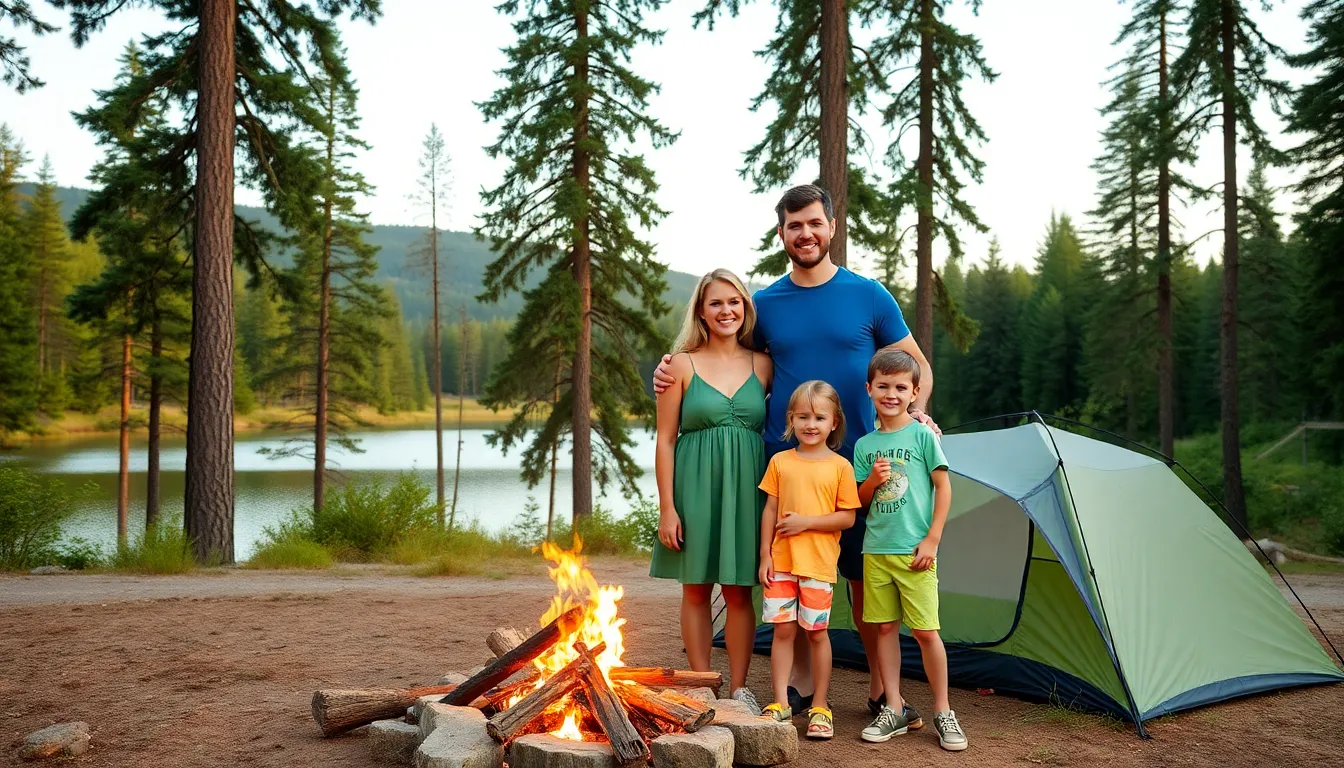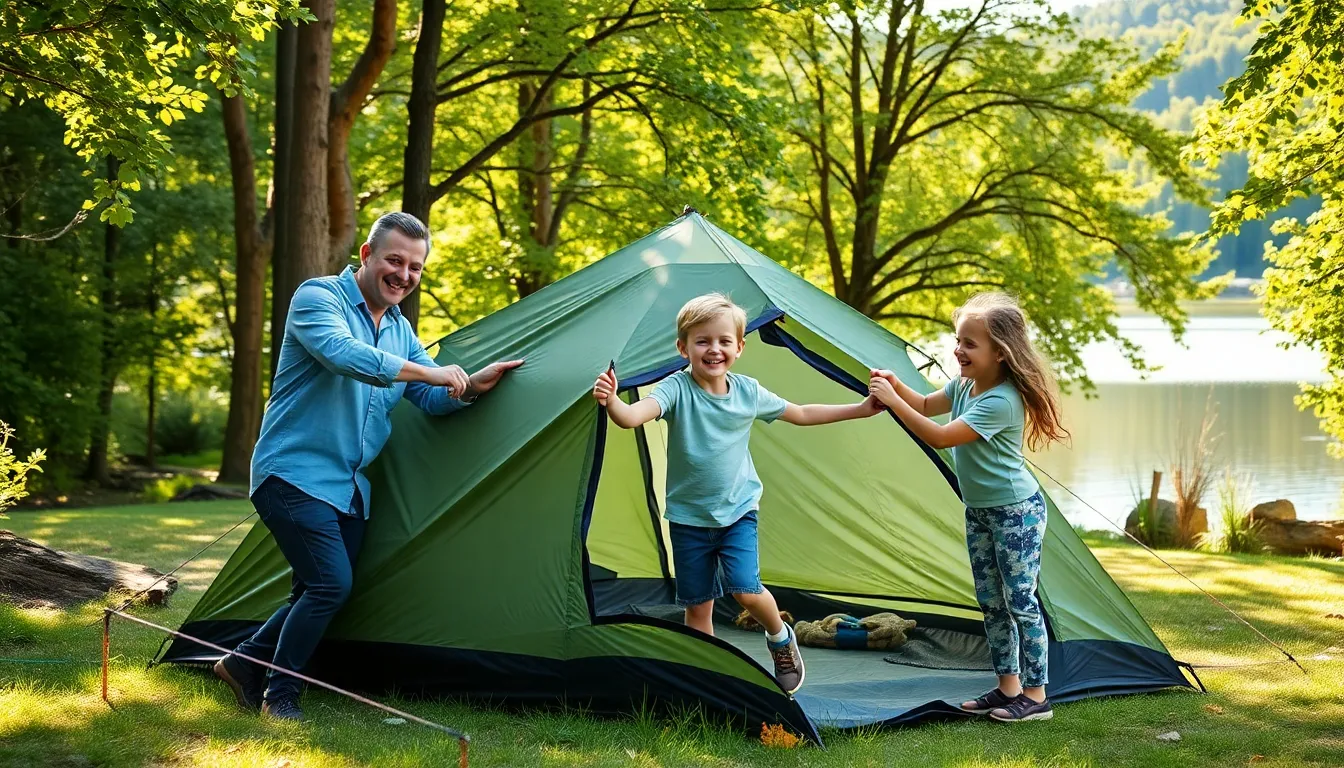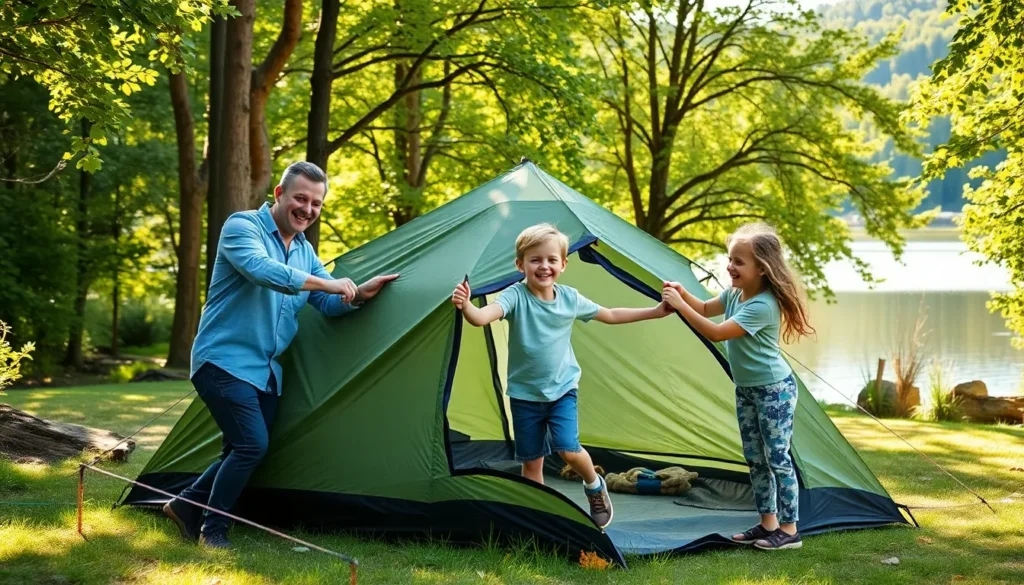In today’s fast-paced world, families often find themselves yearning for a break from screens and schedules. Nature trips offer the perfect escape, allowing families to reconnect with each other and the great outdoors. From hiking through lush forests to camping under starlit skies, these adventures create lasting memories and foster a love for nature in children.
Exploring the beauty of national parks, serene lakes, and scenic trails not only promotes physical activity but also encourages curiosity about the environment. Whether it’s a weekend getaway or a week-long expedition, nature trips provide the ideal backdrop for bonding, learning, and adventure. Embracing the wonders of the natural world can transform family dynamics and inspire a shared appreciation for the planet.
Table of Contents
ToggleBenefits Of Nature Trips For Families
Nature trips offer families opportunities to reconnect and enjoy the outdoors together. These experiences enhance relationships and support overall well-being.
Strengthening Family Bonds
Nature trips strengthen family bonds through shared experiences and collaboration. Families face challenges together, like setting up tents or navigating trails. Engaging in these activities fosters communication and teamwork, leading to deeper connections. Shared discoveries, such as spotting wildlife or beautiful scenery, spark conversations and create lasting memories.
Enhancing Physical Health
Nature trips enhance physical health through outdoor activities. Hiking, biking, and swimming improve cardiovascular fitness and build strength. Exposure to fresh air increases energy levels and reduces stress. Families can encourage healthy habits and a more active lifestyle during these trips. Positive experiences in nature inspire children to embrace physical activity, contributing to long-term health benefits.
Types Of Nature Trips

Families can choose from various types of nature trips to deepen their bond and enjoy the outdoors. These experiences range from camping to hiking and wildlife safaris.
Camping Adventures
Camping adventures offer families a chance to immerse themselves in nature. Setting up tents, cooking over a fire, and sharing stories under the stars create memorable experiences. Popular camping locations include national parks, forests, and lakes. Families can participate in activities such as fishing, swimming, and stargazing. These moments develop teamwork and communication as each member contributes to daily tasks.
Hiking Excursions
Hiking excursions provide a dynamic way for families to explore diverse landscapes. Trails vary in difficulty, making it possible for families to choose routes suitable for all ages. Popular hiking destinations include mountains, forests, and coastal paths. Families encounter various flora and fauna along their hikes, fostering curiosity and appreciation for the environment. These excursions promote physical fitness while creating opportunities for shared accomplishments.
Wildlife Safaris
Wildlife safaris allow families to observe animals in their natural habitats. Safari locations, such as national parks and reserves, often feature guided tours to enhance the experience. Families can witness wildlife behaviors and learn about conservation efforts. This hands-on learning experience fosters respect for nature and its inhabitants. Engaging with wildlife can inspire children to develop a lifelong interest in biology and ecology.
Planning Your Nature Trip
Planning a nature trip requires careful consideration to ensure an enjoyable experience for the entire family. Families should focus on destination selection and packing essentials to maximize the adventure.
Choosing The Right Destination
Choosing the right destination for a family nature trip involves evaluating several factors. Families can consider local parks, national forests, or mountains based on proximity and accessibility. Researching amenities like restrooms, picnic areas, and campgrounds enhances comfort and convenience. Identifying activities available at the destination strengthens engagement, such as hiking trails, fishing spots, or wildlife observation points. For families with younger children, selecting locations with easy trails and safe play areas ensures everyone participates. Checking seasonal weather helps in planning appropriate activities. Prioritize safety by reviewing park rules and guidelines related to wildlife and outdoor safety.
Essential Packing Tips
Essential packing tips contribute to a successful nature trip. Families should prepare a checklist based on the destination and planned activities.
- Clothing: Pack weather-appropriate clothing, including layers for temperature changes. Include rain gear and sturdy shoes for hiking.
- Camping Gear: Bring a tent, sleeping bags, and sleeping pads, ensuring the gear accommodates all family members.
- Food and Water: Pack non-perishable snacks, easy-to-prepare meals, and sufficient water to keep everyone hydrated. Carry a portable water filter or purification tablets if needed.
- First Aid Kit: Include a comprehensive first aid kit that addresses common injuries and allergies to ensure safety.
- Navigation Tools: Bring maps, compasses, or GPS devices to assist in navigation. Pre-download trail data to smartphones for accessibility.
- Outdoor Gear: Equip with essential tools like flashlights, multitools, and camp chairs. Binoculars can enhance wildlife viewing experiences.
- Entertainment: Consider items like books, playing cards, or nature journals to keep everyone engaged during downtime.
Thorough planning enhances the overall experience, allowing families to connect with each other and nature.
Safety Considerations
Safety is a primary concern during nature trips, ensuring families can enjoy the outdoors without risks. Taking precautions helps create a positive experience while exploring.
Preparing For Weather Conditions
Preparing for changing weather conditions boosts safety and comfort during nature trips. Families should:
- Check forecasts for the trip location to avoid unexpected storms or high temperatures.
- Pack layers of clothing, which accommodate varying temperatures and conditions throughout the day.
- Include rain gear such as waterproof jackets and pants in case of unexpected rain.
- Use sunscreen and insect repellent to protect against sunburn and bugs, especially during warm weather.
- Stay informed about local weather changes by monitoring weather apps or forecasts.
First-Aid Essentials
A well-stocked first-aid kit is crucial for handling minor injuries on nature trips. Families should ensure their kit contains:
- Adhesive bandages for small cuts and scrapes, preventing infections.
- Antiseptic wipes to clean wounds before applying bandages, reducing the risk of complications.
- Pain relievers like ibuprofen or acetaminophen for relieving headaches or body aches.
- Elastic bandages for sprains and strains, stabilizing injuries and aiding recovery.
- Tweezers for removing splinters or ticks to avoid infections and ensure comfort.
Equipping a first-aid kit enhances safety while allowing families to focus on creating memories and enjoying nature.
Nature trips offer families a unique chance to disconnect from daily distractions and reconnect with each other. The shared experiences of exploring the outdoors foster teamwork and communication while creating cherished memories. Through activities like hiking and camping, families not only enjoy physical health benefits but also cultivate a lifelong appreciation for the environment.
With careful planning and attention to safety, families can embark on adventures that inspire curiosity and strengthen bonds. Whether it’s setting up a campsite or navigating a scenic trail, each moment spent in nature enriches relationships and encourages a healthier lifestyle. Embracing the great outdoors together is a rewarding journey that families will cherish for years to come.



